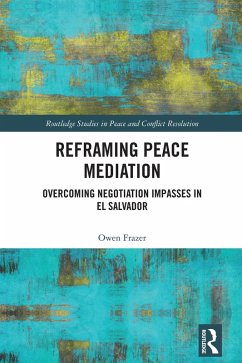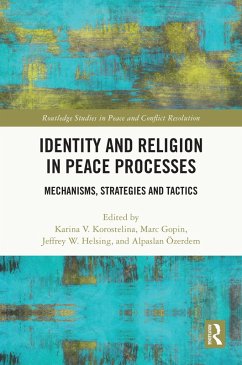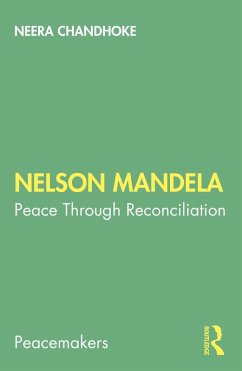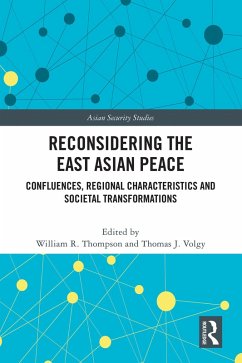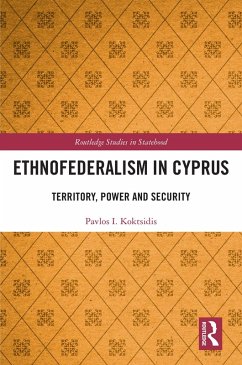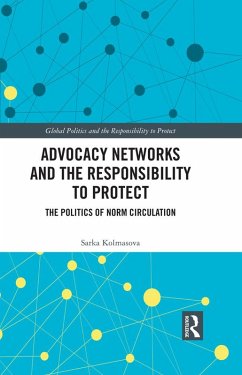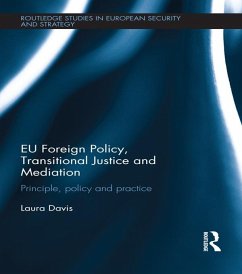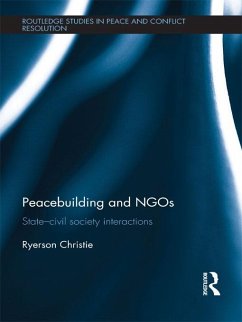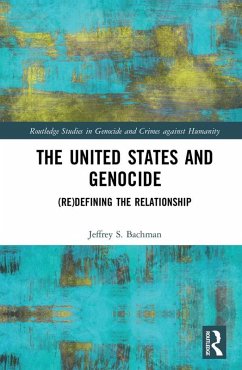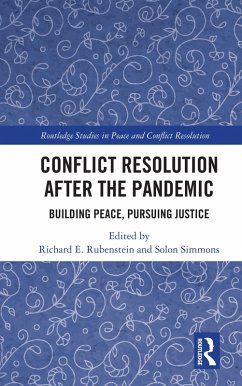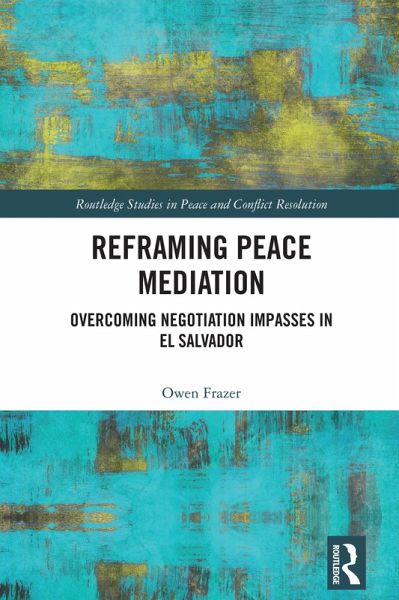
Reframing Peace Mediation (eBook, PDF)
Overcoming Negotiation Impasses in El Salvador
Versandkostenfrei!
Sofort per Download lieferbar
42,95 €
inkl. MwSt.
Weitere Ausgaben:

PAYBACK Punkte
21 °P sammeln!
This book explains how facilitative mediators, those without material leverage, contribute to progress in peace negotiations.While existing theories of mediation have offered suggestions about what a mediator should get parties to do to reach an agreement, the puzzle that has remained is: how does a mediator get parties to do what is prescribed? The book argues that a communication perspective is key to understanding facilitative mediation and that framing is the main mechanism by which facilitative mediation functions. Based on an empirical analysis of the United Nations mediation in El Salva...
This book explains how facilitative mediators, those without material leverage, contribute to progress in peace negotiations.
While existing theories of mediation have offered suggestions about what a mediator should get parties to do to reach an agreement, the puzzle that has remained is: how does a mediator get parties to do what is prescribed? The book argues that a communication perspective is key to understanding facilitative mediation and that framing is the main mechanism by which facilitative mediation functions. Based on an empirical analysis of the United Nations mediation in El Salvador between 1990 and 1992, the work breaks new ground by uncovering three underlying mechanisms that explain how a mediator can get their framing adopted by the negotiating parties, thereby advancing the negotiations. The book offers a novel theory of facilitative mediation as framing and an innovative methodological approach that focuses on negotiation impasses to study the process of how negotiations progress. Practitioners will also appreciate the framework for thinking about when and how framing and reframing can be used to increase mediation's effectiveness as a tool for ending armed conflict.
This book will be of much interest to students of peace and conflict studies, negotiation, Latin American politics, and International Relations, as well as practitioners.
While existing theories of mediation have offered suggestions about what a mediator should get parties to do to reach an agreement, the puzzle that has remained is: how does a mediator get parties to do what is prescribed? The book argues that a communication perspective is key to understanding facilitative mediation and that framing is the main mechanism by which facilitative mediation functions. Based on an empirical analysis of the United Nations mediation in El Salvador between 1990 and 1992, the work breaks new ground by uncovering three underlying mechanisms that explain how a mediator can get their framing adopted by the negotiating parties, thereby advancing the negotiations. The book offers a novel theory of facilitative mediation as framing and an innovative methodological approach that focuses on negotiation impasses to study the process of how negotiations progress. Practitioners will also appreciate the framework for thinking about when and how framing and reframing can be used to increase mediation's effectiveness as a tool for ending armed conflict.
This book will be of much interest to students of peace and conflict studies, negotiation, Latin American politics, and International Relations, as well as practitioners.
Dieser Download kann aus rechtlichen Gründen nur mit Rechnungsadresse in A, B, BG, CY, CZ, D, DK, EW, E, FIN, F, GR, HR, H, IRL, I, LT, L, LR, M, NL, PL, P, R, S, SLO, SK ausgeliefert werden.




